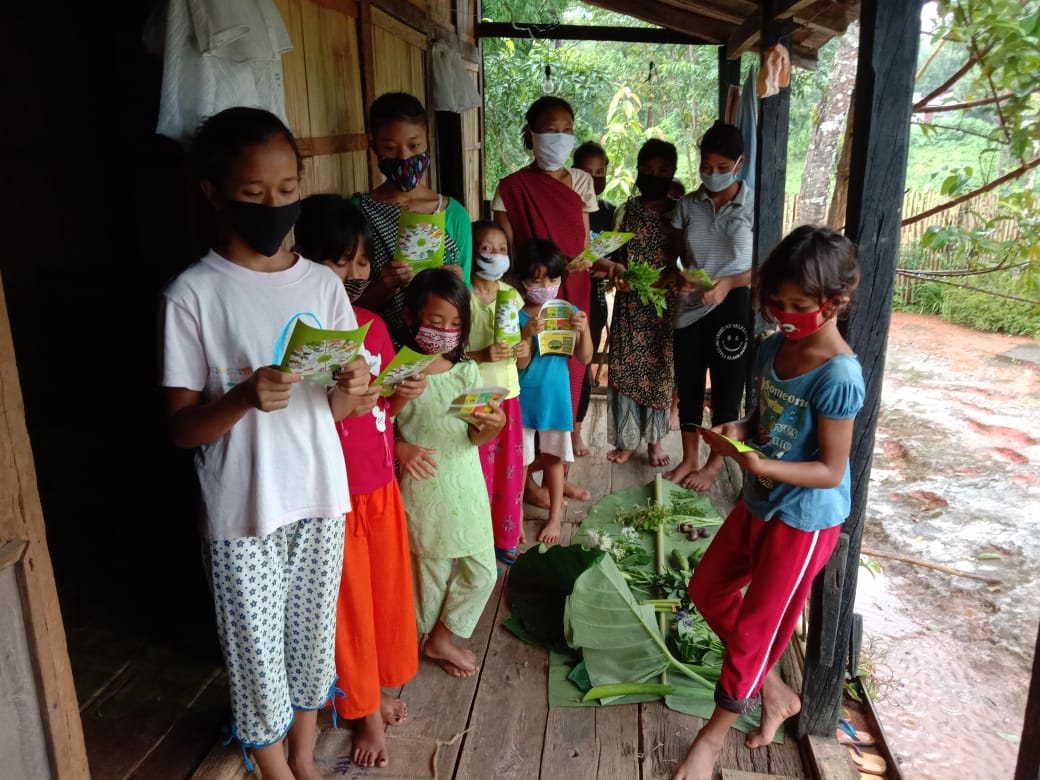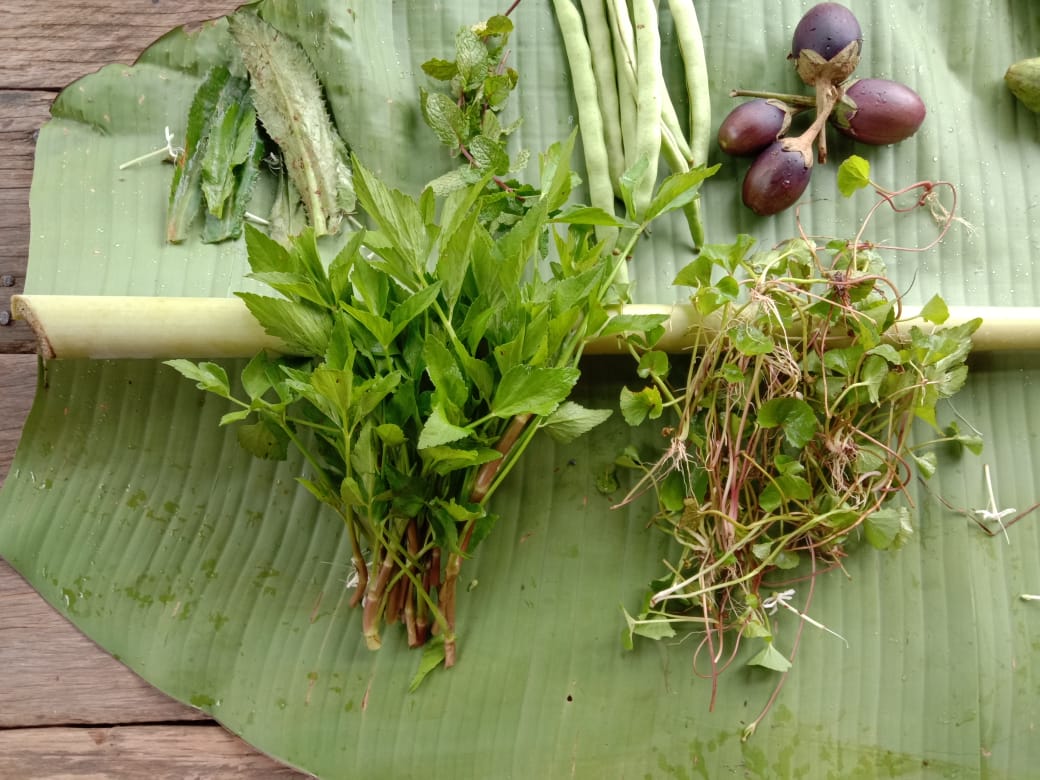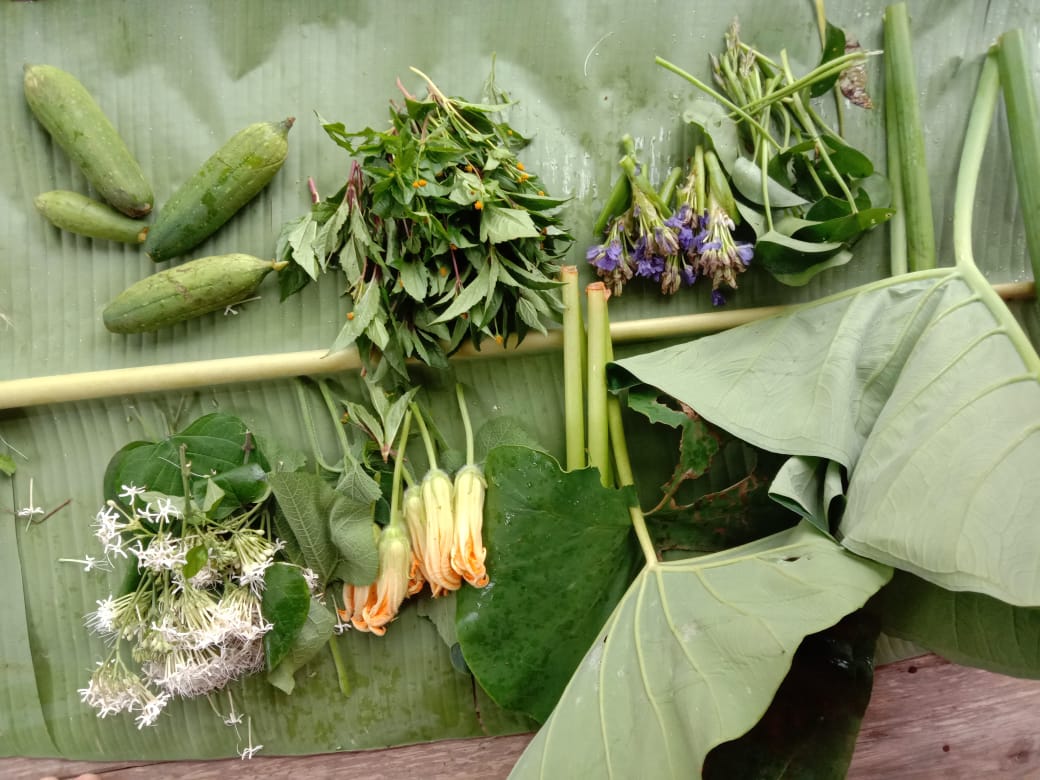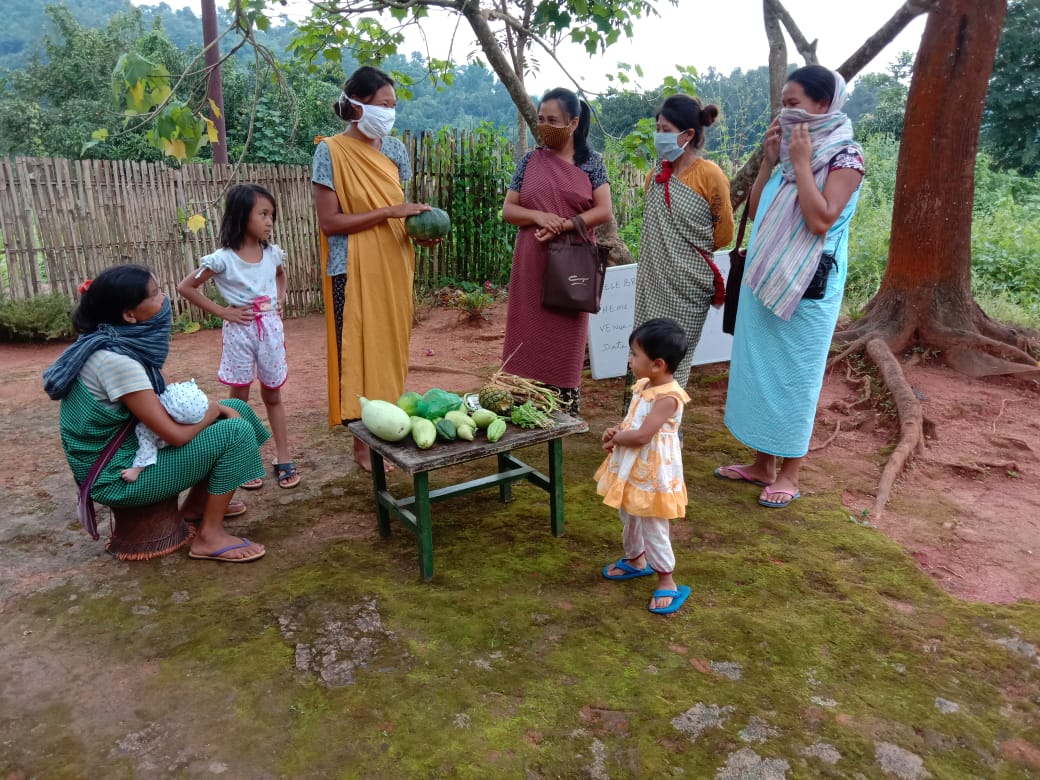In the wake of the ongoing pandemic, children have been taking a break from school since the COVID-19 virus has been spreading far and wide. In urban areas, schools have adopted online teaching despite many complaints of poor connectivity. However, it is a different story altogether in the rural areas.
During this time, the children in the communities engage in helping their families in the fields and kitchen gardens. Recognising the role of the younger generation to safeguard the Indigenous Food Systems (IFS) and the importance of ensuring the health of its children (six – 15 year-olds), NESFAS along with the community facilitators from different communities saw this as an opportunity to strengthen their knowledge on IFS.
Most of the communities conduct several activities to further enhance the children’s confidence in their food systems to ensure food and nutrition security. Traditional knowledge holders, custodian farmers in different communities teach the children about the importance of the 10 food groups through songs, drawings, and games. They also engage the children to categorise the different food items according to food groups and their functions.
Several agrobiodiversity (ABD) walks were held and is considered to be one of the main activity to facilitate the understanding of IFS and nutrition. The objective of these ABD walks is to acquaint the children with crop diversity found in different production systems, to encourage the consumption of clean and nutritious local food, and to learn about farming practices. Through the ABD walks, the children are shown that of the 10 food groups, seven food groups of plant sources are available within their village and can be consumed to meet the minimum dietary diversity.
During the ABD walks, the children are enabled to identify the different wild edibles that can be foraged, their seasonality, and benefits. Wild edibles play an important role in supplementing the nutritional need and equipping them with this knowledge will be crucial for the conservation of biodiversity-rich forests. Madanrtiang community (Ri-Bhoi district) also demonstrated the traditional method of cooking food in bamboo tubes using the wild edibles collected from the walks.
On the other hand, it may be mentioned here that kitchen gardens constitute an important production system that is maintained by almost all households in rural communities. These kitchen gardens with the maximal crop diversity and agroecological practices are identified and selected for the ABD walk. Custodian farmers who are members of Agroecology Learning Circle (ALCs) or PGS groups along with Anganwadi workers taught the children how to grow their food and engaged them in:
- Preparation of the soil: This includes the process of clearing land, tilling, preparing beds, adding manure, and compost to fertilize the soil.
- Selection of crops: This includes sharing the importance of saving good quality seeds and the process of storing seeds.
- Planting of crops: Crops like potato, peas, beans are planted in the prepared soil, where the spacing between seeds and soil depth was taught.
- Pest management: This includes the process of controlling the pest that can attack the crop that has been planted. The use of ash to deter pest infestation in bean seeds was demonstrated.
These ABD walks were followed with cooking demonstrations where ingredients collected from the production systems were incorporated to prepare a local dish and a plate with five or more food groups.
Kelamon Suting from Umsawwar, a member of the local Youth Club and one of the organisers of the ABD walk in the community said, ”Conducting such activities is crucial in helping the younger generation gain a better understanding about how their food is grown.”
Thus, the initiative is a step forward in securing a future where children would become pioneers in strengthening and promoting a self-sufficient and resilient community-based Indigenous Food System.
 Translate
Translate








